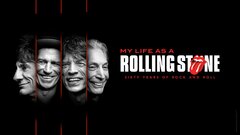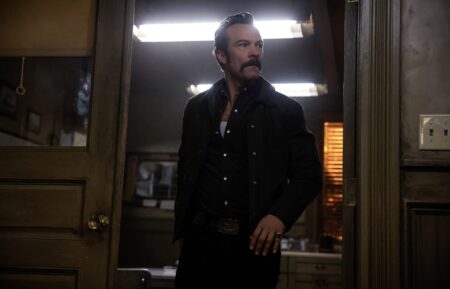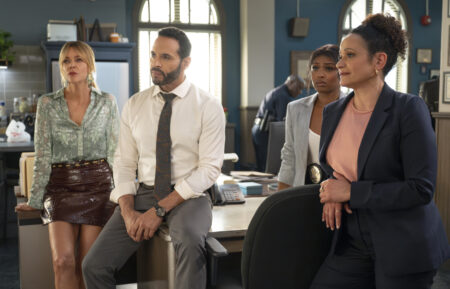‘My Life as a Rolling Stone’ Digs Into Iconic Band’s Story Like Never Before
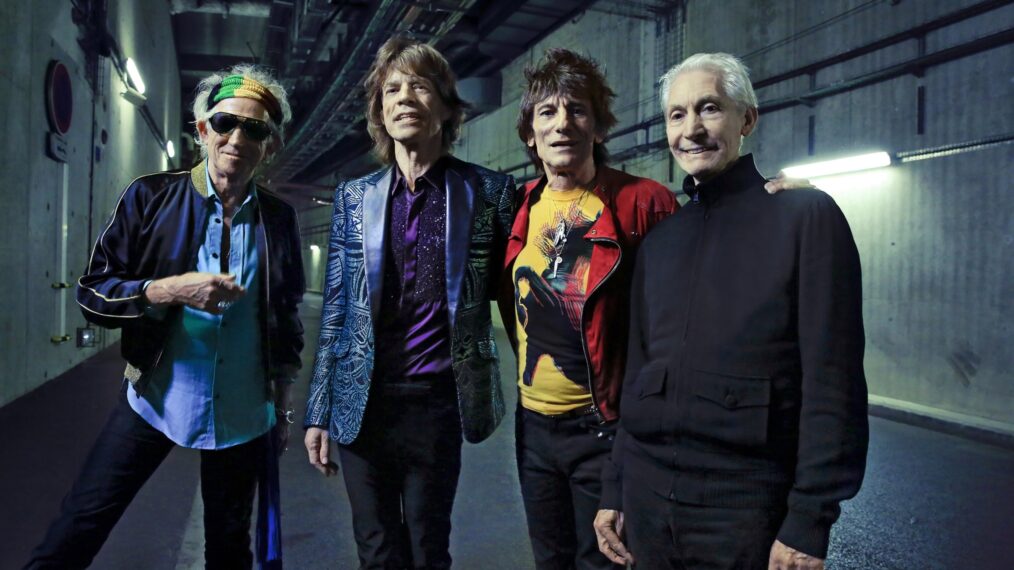
Preview
If a band is only as good as the sum of its parts, then the Rolling Stones have had some really good parts for 60 years. And fans will get to know Mick Jagger, Keith Richards, Ronnie Wood, and the late Charlie Watts on a deeper level thanks to the docuseries My Life as a Rolling Stone. Each of the four hour-long films focuses on a different member of the iconic rock band, delving into their respective journeys.
Richards, Wood, and Jagger sat down for a series of rare and candid interviews while Watts, who passed away in August 2021, is celebrated through tributes and archival footage. Legends across genres add their own insight on The Stones’ impact on music. Ahead of the docuseries’ August 7 Epix premiere, we spoke with executive producer Steve Condie on the making of the project and why it’s unlike anything done on the band prior.
Take me through the decision to split up the docuseries by focusing on the bandmates separately rather than focusing on the band’s overall story.
Steve Condie: It was our first creative decision. I think when we looked at it, we thought the story of 60 years in a straight chronological linear line felt like it could be a bit predictable. Secondly, each of these guys is just fascinating in his own right. We asked ourselves, “Will we lose a chance to understand them individually if we’re constantly talking about them as a collective?” The other thing is nobody has ever done it like this before. It’s always attractive to do something in a novel way: Four films about their individual journeys and qualities, doing them as a series so when you go to the end of it you have a deeper understanding of them as individual artists.

Andrew Timms
Was it difficult to get the band to buy in on the vision set for this project?
They were pretty enthusiastic and liked the way we were framing it. Then, sadly, Charlie Watts died, so things had to go on hold a little bit. Getting members of the Rolling Stones to sit down for a few hours is pretty hard work because they are global citizens. At one point, I can remember exasperatingly saying to their manager, “Any chance they might be in the same hemisphere in the next few months?” It’s difficult getting them corralled. We did Mick in London, Keith in New York, and Ronnie just outside of London.
They were generous with their time and generous with the idea. We were asking them to be reflective. We’re not trying to capture every aspect of the Rolling Stones’ story. We’re trying to focus on what were the important things that are revealing about their personalities and their journeys. They did their homework. We told them about the areas we’d like to cover, and they went away to think about it. It’s hard for someone to dredge up memories from 50 years ago. But they tried to be thoughtful and reflective in the way they engaged in our interviews. We were grateful for that.

Kevin Mazur
Here are these larger-than-life figures, but the docuseries peels back layers where real vulnerability is shown. It humanizes them for a viewer. How was it for you to witness that?
I’m really glad you picked up on that. They are these Mount Rushmore-ish figures in our culture. But at the same time, they share these experiences we all go through including love and loss and achievement and aspiration. I’m glad you feel we got to that. A couple of things help in that regard. One was our decision to only feature them on camera and deciding to interview everyone else on audio. We felt it would really enhance their sense of intimacy for them. That comes across. When you see them now, you’re playing that against them at ages 19, 20, 25, 30 when they are in their prime.
There is something poignant about it and inspiring in lots of ways. They talked so passionately about those years and what they were going through and what they hoped they were achieving with their art. That lends a quality of connection that comes across in the films. The reaction we’ve gotten so far finds it a very emotional experience. They realize how much the Rolling Stones were part of their life. The Stones and their music were the backdrop of our lives in a lot of ways.
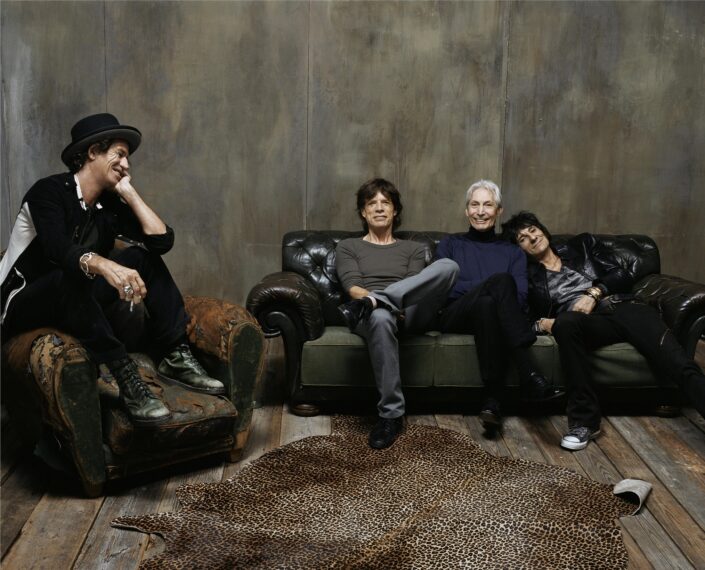
Steven Klein
Charlie passed away in the early stages of development. Was there a point where you wondered if this project would even move forward?
They wanted to do this. They wanted there to be a tribute to him. They wanted an appreciation for him that they can be in. Where they can talk about how they’re feeling right now and share memories. Were we worried about how Charlie’s loss would affect the project? Of course, but in the end, everyone felt it added another reason why we should do it. It was a chance to appreciate him.
You had a number of very big names interviewed, including Tina Turner. How was it getting them on board?
I think it’s a great list. Tina was a real bonus because she doesn’t do very many interviews anymore but she wanted to do this. Someone like Tom Waits, an American icon, never does an interview, but he wanted to talk about Keith. People like Lars Ulrich, Jon Bon Jovi, Slash, and Patti Smith — all these fantastic names in music were incredibly enthusiastic about doing this and made the time. That’s a tribute to The Stones and the influence they had on other artists.
Have you gotten any feedback from The Stones?
I’m happy to say they’re happy. That’s always an achievement. They really liked the films. I think they are probably too modest to say it, but I think they appreciate the big names coming on to pay their respects. I think they feel we got the balance right. Mick in particular said he didn’t just want a film with “Mick Jagger, you’re this amazing, greatest frontman ever icon.” He wanted a film that properly engages with what they experienced as a band and group of guys. We wanted to spotlight what made them successful, musically and as an institution that has endured for six decades.
My Life as a Rolling Stone, Series Premiere, Sunday, August 7, 9/8c, Epix


